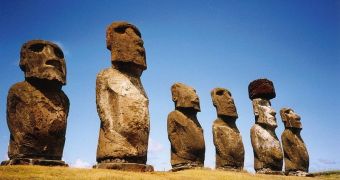A study conducted in French Polynesia, on the tiny island of Mangareva, in the Pacific Ocean, shows that people living here more than 600 years ago had words to describe base 2 calculations, or binary numbers. These numbers were not rediscovered in Europe until 300 years later.
Interestingly, this may hint at the fact that this system may arise from cognitive motivations that have little to do with advanced science and technology. Some experts even argue that this study may yield more insight into how potential alien civilizations may communicate with us during first encounters.
The team behind the new study, based at the University of Bergen in Norway, says that the type of digital computations that are so common today would be impossible without the work of German mathematician Gottfried Leibniz, who is generally credited with inventing binary arithmetic.
However, Leibniz carried out his theoretical work at the start of the seventeenth century, which is nearly 300 years after binary numbers were first used on the island of Mangareva. A study supporting this hypothesis appears in the latest issue of the journal Proceedings of the National Academies of Science (PNAS).
The Mangarevan culture and language have now been completely assimilated into other languages and customs, but UB psychologists Andrea Bender and Sieghard Beller were able to analyze historical records of the ancient culture to arrive at this conclusion.
Base 2 arithmetic works powers of 2, instead of powers of 10, such as in conventional, base 10 mathematics. So, instead of units numbered in tens, hundreds (10^2), thousands (10^3) and so on, we have units numbers in 1 (2^0), 2 (2^1), 4 (2^2), 8 (2^3) and so on, Nature reports.
Bender and Beller found that the tiny Polynesian nation used binary numbers even before 1450 AD. Archival data suggest that Mangarevan speakers combined base-10 representations with a binary system to calculate the value of large transactions, as well as the seafood and root crop tributes they had to make to their chieftains.
The idea of binary systems “can be traced back to at least ancient China, around the 9th century BC. Other ancient groups, such as the Maya, used sophisticated combinations of binary and decimal systems to keep track of time and astronomical phenomena,” says researcher Rafael Nuñez.
“Thus, the cognitive advantages underlying the Mangarevan counting system may not be unique,” comments Nuñez, who is a cognitive scientist with the University of California in San Diego (UCSD).
What is clear from this study is that the history of prime numbers is significantly more complex than researchers first assumed. More work is needed to understand the evolution of this idea throughout history.

 14 DAY TRIAL //
14 DAY TRIAL //